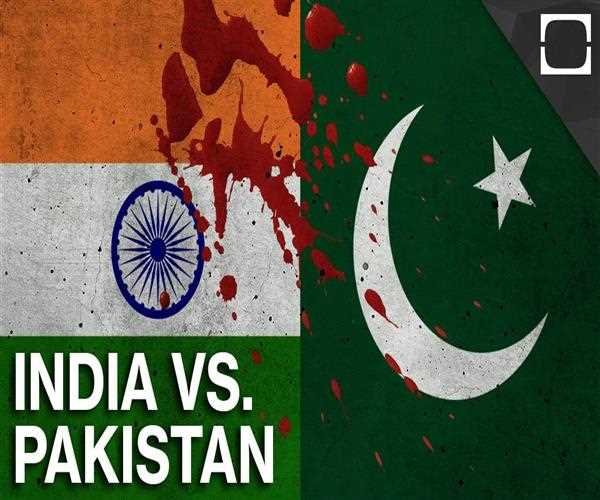
India and Pakistan fought two wars over it and are now nuclear armed. But why do India and Pakistan dispute Kashmir?
How old is this fight?
India and Pakistan got their independence from Britain in August 1947, Kashmir was hotly contested. Under the partition plan provided by the Indian Independence Act, Kashmir was liberal to accede to India or Pakistan.
The Maharaja Hari Singh(local ruler), chose India and a two-year war erupted in 1947. A new war followed in 1965, while in 1999 India fought a quick but bitter conflict with Pakistani-backed forces. By that point , India and Pakistan had both declared themselves to be nuclear powers. The conflict between India and Pakistan, both nuclear powers, is inextricably linked. The countries have fought a series of wars since gaining their independence from Great Britain in 1947, largely over the Kashmir region, to which both countries claim . India became a atomic power in 1974, and Pakistan became a atomic power in 1998.Neither country has used nuclear weapons in conflict, but many experts fear that the continued crisis could escalate beyond conventional weapons use.
Here is a brief history of the conflict between the two countries.
August 1947: Following the top of British rule, British India was partitioned into India and Pakistan. The provincial division was based on Hindu and Muslim majorities, which caused mass migration for those that did not live in the majorities. Hundreds of thousands of people were killed in communal violence resulting in an atmosphere of hostility that has remained for decades. The Jammu and Kashmir regions have been disputed since partition, with Pakistan and India both claiming ownership.
October 1947 – January 1949: the primary Indo-Pakistani war began following an invasion of Kashmir by armed tribesmen from Pakistan. Kashmir turned to India for military assistance and reciprocally agreed handy over powers of defence, communication and foreign affairs, acceding to India. A ceasefire was arranged on Jan. 1, 1949 and a ceasefire line was established – now called the road of Control.
In August 1965: The second Indo-Pakistani war was sparked by a series of clashes across the India-Pakistani border. Hostilities broke call at August when Pakistani soldiers crossed the road of Control into Indian-administered Kashmir in an effort to start out an insurgency against India (Operation Gibraltar). The war led to January 1966 when officials from India and Pakistan signed a declaration affirming their commitment to peace.
In December 1971: When India and Pakistan became their own countries, Pakistan was split into two parts – Bangladesh and Pakistan . The third Indo-Pakistani war happened when Pakistan erupted into war , pitting Pakistan against Bangladesh , who demanded independence. A thousand of east Pakistanis fled to India, and quickly the West Pakistani army surrendered. East Pakistan earned independence on Dec. 6, 1971 and changed its name to Bangladesh.
In May 1974: India successfully tested its first weapon of mass destruction , code named “Operation Smiling Buddha.” It happened on the military base Pokhran range , on the brink of its border with Pakistan.
In July 1989: Armed resistance against Indian rule began in Kashmir when Muslim parties complained that the 1987 elections were rigged against them. Some people demanded freedom while others wanted a union with Pakistan. Pakistan supported the movement, calling for the issue to be resolved by the United Nations. India called for Pakistan to end cross-border terrorism. From many years, several new radical Islamist groups have emerged, shifting the movement from a nationalistic and secularist one to an Islamic one. The insurgency has continued until present day.
In May 1998: Pakistan and India both conducted for the nuclear tests. India‘s underground this test was conducted near its border with Pakistan. In response, Pakistan conducted six tests. The international community condemned India and Pakistan for the testing, and urged the 2 nations to prevent their nuclear weapons programs.
In May 1998: India adopted a No First Use (NFU) policy, meaning the state wouldn't use weapon of mass destruction s unless it had been attacked with a nuclear weapon first. Despite questions round the policy, India remains faithful to the NFU doctrine.
In May 1999: After nearly 30 years, India launched air strikes against Pakistani-backed forces that had entered Indian-administered Kashmir. As fighting increased toward an immediate conflict between the 2 nuclear states, Pakistan‘s troops were placed on high alert. At least 38,000 people fled their homes on the Pakistani side of the Line of Control.
In December 2001: Five armed terrorists entered the Indian Parliament building and opened fire, killing nine people. India blamed Pakistani-backed Kashmiri militants for the attack, which led to a massive build-up of troops along with Indo-Pakistani border.
In February 2007: Blasts in two coaches of the Samjhauta Express killed 68 people, most of them Pakistani nationals. The train was created in 1994 as a goodwill measure to assist families who were separated during the 1947 India-Pakistan partition. That came at once when relations were improving between India and Pakistan.
November 2008: Ten Pakistani men associated with the fear group Lashkar-e-Tayyiba stormed various buildings in Mumbai and killed 164 people using automatic weapons and grenades. Only one of the 10 gunmen survived, and was executed in 2012.
In February 2019: Pakistani-based terrorist group Jaish-e-Mohammed carried out a suicide car bomb attack in Indian-controlled Kashmir which resulted in the deaths of over 40 members of India‘s paramilitary forces. India retaliated with air strikes across the Line of Control, and Pakistan shot down an Indian aircraft and captured a pilot. These actions significantly increased tensions between the 2 nuclear states but two days later, the Indian pilot was released and tensions relaxed.
Conclusion:- There is no hope that these disputes will ever end because media play a very crucial role behind this conflict they never show the right thing to the people of the country.
Hope for the best.....